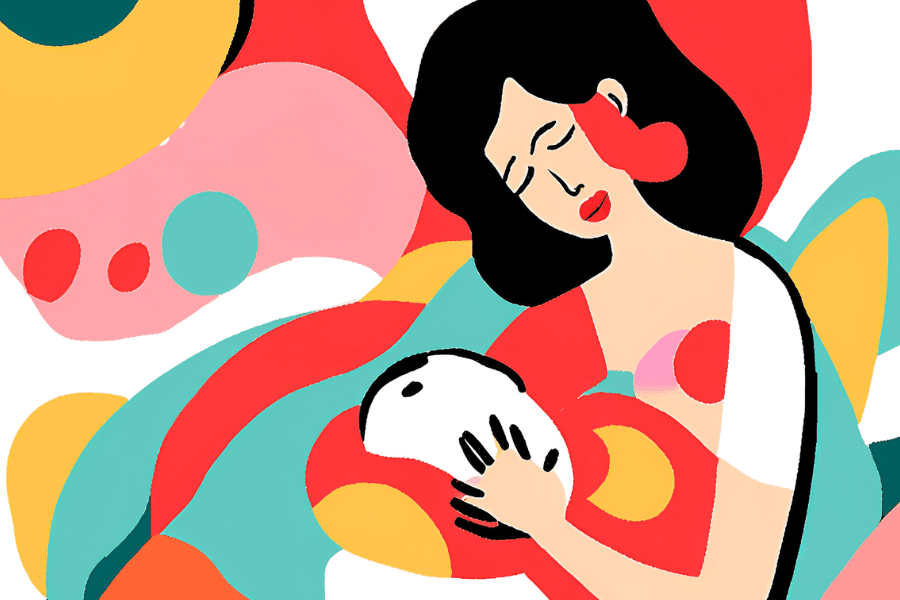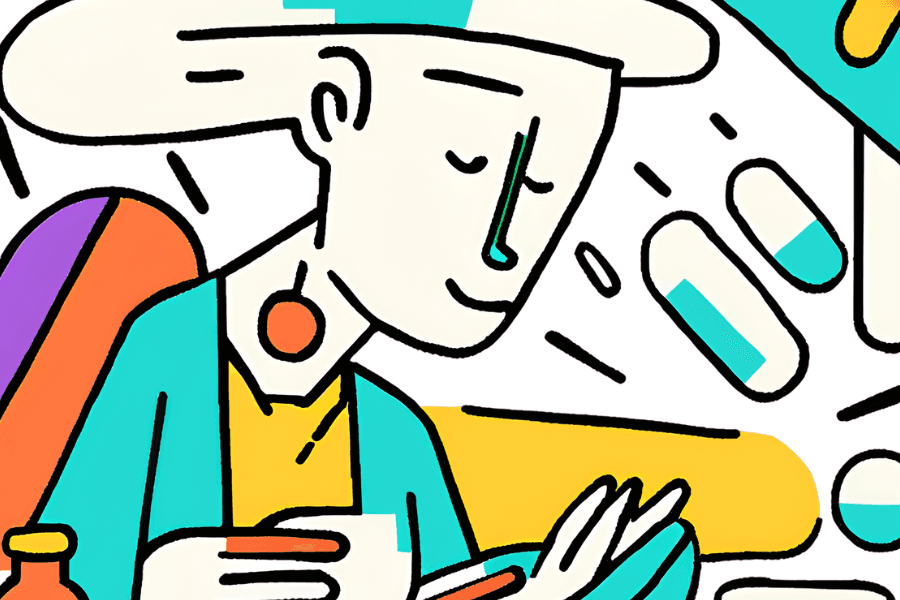Essential
·
5 min
·
July 13, 2023

Temidayo Awosanmi
Fibroid, often silent and misunderstood, can significantly impact a woman’s life. These non-cancerous growths in the uterus can cause a range of symptoms, from heavy bleeding and pelvic pain to infertility. In this blog, we share the personal stories of two women who have navigated the challenges of living with fibroid.
To protect the privacy of the women, we've changed their names and some identifying details. Susan, is a 28-year-old marketing specialist at a B2B company in Nigeria, and Folashade,is a 32-year-old internal auditor at a thriving startup.
Meet Susan and Folashade
Their stories offer a glimpse into the lives of women navigating this common yet often misunderstood condition.

How did you find out you had Fibroids?
Folashade: I experienced heavy period and realized I was changing my tampons regularly. As someone who doesn’t experience menstrual pains, I started having pains. A colleague noticed I was going to the toilet regularly and suggested I see a doctor because she had a similar experience and was diagnosed with fibroid, too.
Susan: I was in the university when mine happened. Typically, I never used to have menstrual pains, but suddenly, my period became heavy. Normally, a pad should be full in 3-4 hours, but in one hour, my pad was full already. Even if I don’t sit, it was still bad because I would get stained. I had to start using Lady Sept, and for people who don't know, it is the type of pad they give pregnant women when they've given birth because of their heavy flow.
Oh, that bad?
Susan: Sometimes I had to use a double pad or two small pads. And it's just four days, but those four days, eh? When I'm done, I have to take, what's that thing called? Blood Tonic because I always feel very dizzy during that period because a lot of blood is just coming out of my body.
So what did you do next?
Susan: I had to go to the hospital and complain. They told me I had to go and do a scan. That was how I found out that I had multiple fibroids.
Folashade: I visited the hospital and was directed to a gynecologist who diagnosed me of fibroid.
How did the diagnosis impact you?
Folashade: I felt confused, thinking “where did this come from” and started doing my research.
Susan: So obviously, the first time I heard about it, I was sad, and the only option they were giving me was I should go and get married.

What?
Susan: Yes, that's the next thing; they start asking you when you want to marry. I was like, what kind of question is that? I'm on my own, living my life, and this is happening all of a sudden, and I am obviously sad.
Folashade: I had a bad experience with a previous gynecologist who didn’t want to take the growth out because I was not married. His reason was, why would I have a scar when I am yet to get married.
Hearing you speak about this, what were some of the biggest challenges you faced living with fibroid, both physically and emotionally?
Susan: The biggest challenge has got to be the flow. I don't look forward to menstruating; whenever it comes like this,it's just a lot because I'll be out for four days. I'll either be tired or drained. Like it's just not it, I'm always checking myself to be sure I am not stained because the flow is too much. I even try to not go out on those days because I can't sit in one place. It's just draining as I've been living with it.
Folashade: It was really tough for me to cope, especially when I am going to work or going out because I was always stained in public places especially since my job requires me to sit for long hours and I forget to change my tampons.
So sorry to hear that, are there any lifestyle changes you have made to manage your fibroid?
Folashade: I didn’t have any lifestyle changes, all the research I did suggested that it didn’t change anything. I continued my normal routine.
Susan: Honestly, there are no changes I have made, but I've just been living life the way it has been. I just make sure to work out a lot, and then I stay off all these fizzy drinks because normally, a person menstruating is supposed to say off fizzy drinks. But I stay off it generally whether I am menstruating or not.
How has these changes been for you?
Susan: I am also human, so in some months, I will indulge in the sweet things, and my period flow can last up to 6-7 days. So I try to stay off it because if I don’t, my period lasts more than 4 days.

Did you have surgery to get the fibroid removed, and how was the process?
Folashade: I had surgery and my recovery process was fast. The pain wasn’t that great, but for now, I can’t really say any positive outcome because I have not had my period.
Susan: No, I have not gone for surgery.
Is there any reason why this hasn’t happened?
Susan: My last scan, the doctor talked about it being very small, so there was no need to have surgery.
What do you wish you had known about fibroid before your diagnosis? How might this knowledge have changed your experience?
Susan: I would say it can happen to anybody. I think also at the beginning, I had just three fibroid but I started taking multiple supplements for my skin, hair, and everything, which were not prescribed by doctors. Then when I checked back, the fibroid I had multiplied to 8 or 10. Someone said it was because of the supplements I used, like I was basically feeding the fibroid. I sometimes wished I had not taken them; now I only take zinc and calcium as prescribed.
Did you experience any misconceptions about fibroid from your spouse, friends, or family?
Susan: No, I did not experience any misconceptions, actually.
Folashade: They kept saying I shouldn’t take it out, it will affect my ability to give birth but I feel it was the best decision for me rather than leaving a growth in my body.
How important has your support system (family, friends, healthcare providers) been in managing your fibroid?
Susan: Well, my family has been very supportive. My mum had fibroid, and my sister also; they have even done the surgery. I am thankful because it is something I have been able to manage. The only issue is the heavy flow but we have people in my family with fibroid, so I have a 10/10 support system.
Folashade: My family and friends were really supportive and my healthcare provider was really great as well. They educated me better on everything I needed to know.
What is something new you learned with your experience that would benefit other women?
Susan: Do your research before taking any medications or supplements and make sure it is prescribed. Stay off fizzy drinks, workout, pray, and lean towards your support system (even if the fibroid never gets removed).
Folashade: You are not alone, speaking more about it helped me realise many women also experienced it. We need to break the code of secrecy with women’s health. I always recommend speaking with people about it.
At Famasi Africa, we are committed to supporting women in their healthcare journey. If you're experiencing symptoms of fibroids, don't hesitate to seek medical advice and speak to a Care Specialist at Famasi. Early detection and appropriate treatment can significantly improve your quality of life.
If you are interested in sharing your health story, our health blog at Famasi Africa is a great place to start.
No spam, just certified good stuff





